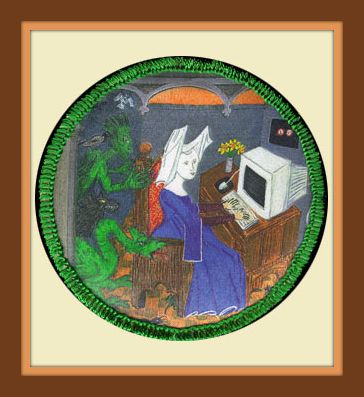To supplement my reading of Spink's authorized biography of Mother Teresa, I turned to Anne Sebba's biography Mother Teresa: Beyond the Image. It was immensely more readable than Spink's. So too, it was a more balanced portrayal of her. I breathed a huge sigh of relief when in the introduction I read "No individual is perfect, and by blacking out those aspects which make them a fully rounded human being, the media and those who collude with them do her a disservice. Once any small weakness is observed, people feel let down, cheated; eventually, the person is exposed to attack."
The first half of the book recounts chronologically the details of her life, and the second half examines questions arising out of Mother Teresa's work and philosophy.
In Spink, I got little hints of some aspects of her personality that were confirmed in Sebba's account.
- Mother Teresa was a bit of a control freak. She wanted to be in charge and micro-manage every aspect of the Missionaries of Charity. She had a set of rules and was scrupulous in making sure the sisters followed them. She never wanted to colloborate with others, and when the Co-Workers started growing too much, she disbanded their institution.
- She strongly favors faith and prayer over knowledge. In her houses of death, she was more likely to say that someone was going home to God, rather than to try to implement any medical procedures and practices that might help that person recover. She refused to use trained nurses, and refused to separate the infectious patients into their own area. The missionaries of charity were not to read any newspapers or books, since they were not needed to inform them. Rather, they should trust in the Holy Spirit for all the knowledge that they needed. Missionaries were tranferred quickly from place to place, without the opportunity to build up specialized practical or language skills. Love was all they needed.
- She was fierce in her insistence of the order's subjection to poverty. Sebba recounts an experience in San Francisco where a house had been readied for the Missionaries of Charity. When Mother Teresa showed up, she was very disapproving of the "luxury" there, and rugs and mattresses were thrown out the windows, along with the water heater. In another case, she chastized sisters for canning tomatoes during a time of thier abundance. "MofC do not store things, but must rely on God's providence."
- She was relentless in her support of the Catholic church and its authority, and was especially vocal about speaking up against abortion and contraceptive use. She would not give her babies for adoption to couples who used contraception since they "cannot love freely and unconditionally."
- Temporal rules such as building and fire codes were deemed unimportant, since God would provide. This goes hand in hand with point 2. She refused to spend time compiling accountability reports to individual donors who had given money to her institution, so there was often very little understanding of how much money had been given and to what use it was going.
I have highlighted criticisms of her here, but this is not to suggest that Sebba's book was only critical. There were several portions of the book where I felt renewed awe and inspiration at her life and work.
And finally, I liked this description of the difference between the two books:
Spink's life of Mother Teresa has the appearance of a pre-Vatican II holy card--an uncritical image of a saint always naively happy and trusting completely in Providence...In contrast, Sebba's work contains light and shadows as she asks key biblical questions that Mother Teresa struggled with every day of her life: What are the poor among us and how can we respond to their needs?

No comments:
Post a Comment